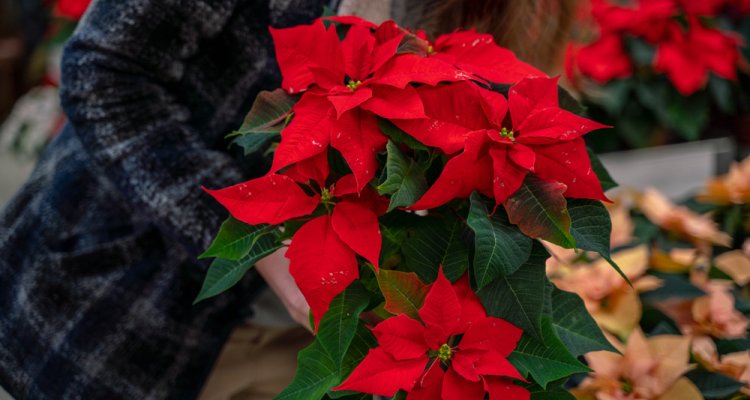
Project
Whitefly resistant Poinsettia to reduce insecticide use
Poinsettia (Euphorbia pulcherrima) originates from Mexico and is the most important pot plant, which is used as decoration especially around Christmas time. Most Poinsettias are produced in greenhouses and their cultivation suffers from insects, whiteflies being the most important ones. Whiteflies can cause damage to the plants themselves, but also to their commercial value.
Whiteflies cause direct and indirect damage to Poinsettia plants by depleting them from photo-assimilates, by producing honeydew, and by vectoring viruses that can destroy a plant in a matter of weeks. The most important damage however is the presence of the insects or their eggs themselves, for which there is a zero tolerance in the market.
Biological control and integrated pest management are widely used, with neonicotinoids being most important in management. However, whiteflies develop resistance to these and other insecticides. Also from an environmental point of view alternatives are needed.
Host plant resistance is a natural way of combatting insect problems. It enables the plant to resist insect invasions by either being unattractive (antixenosis) or by interfering with life history traits of the insect (antibiosis). Currently there is little knowledge about genetic variation for whitefly resistance in Poinsettia. Some differences in susceptibility among varieties have been observed, but there is no strong resistance identified yet. Strong resistance against insects is often found in wild relatives of the cultivated material. However, at present there is little knowledge about crossability of species related to E. pulcherrima. Also there is no knowledge on the mechanism(s) and genetics of the differences in susceptibility/resistance.
The main goals of the project are:
- to identify novel sources of resistance against whiteflies that are crossable with E. pulcherrima
- to study the genetics of resistance
- to characterize the resistance mechanism(s)
The results will support the production of varieties that can be cultivated in a sustainable way, without or with far less insecticides than currently used. As such these varieties will contribute to the demand from society to reduce pesticide use. From a scientific point of view the project will increase our knowledge on the poinsettia-whitefly interaction and the possible role related species in poinsettia breeding.